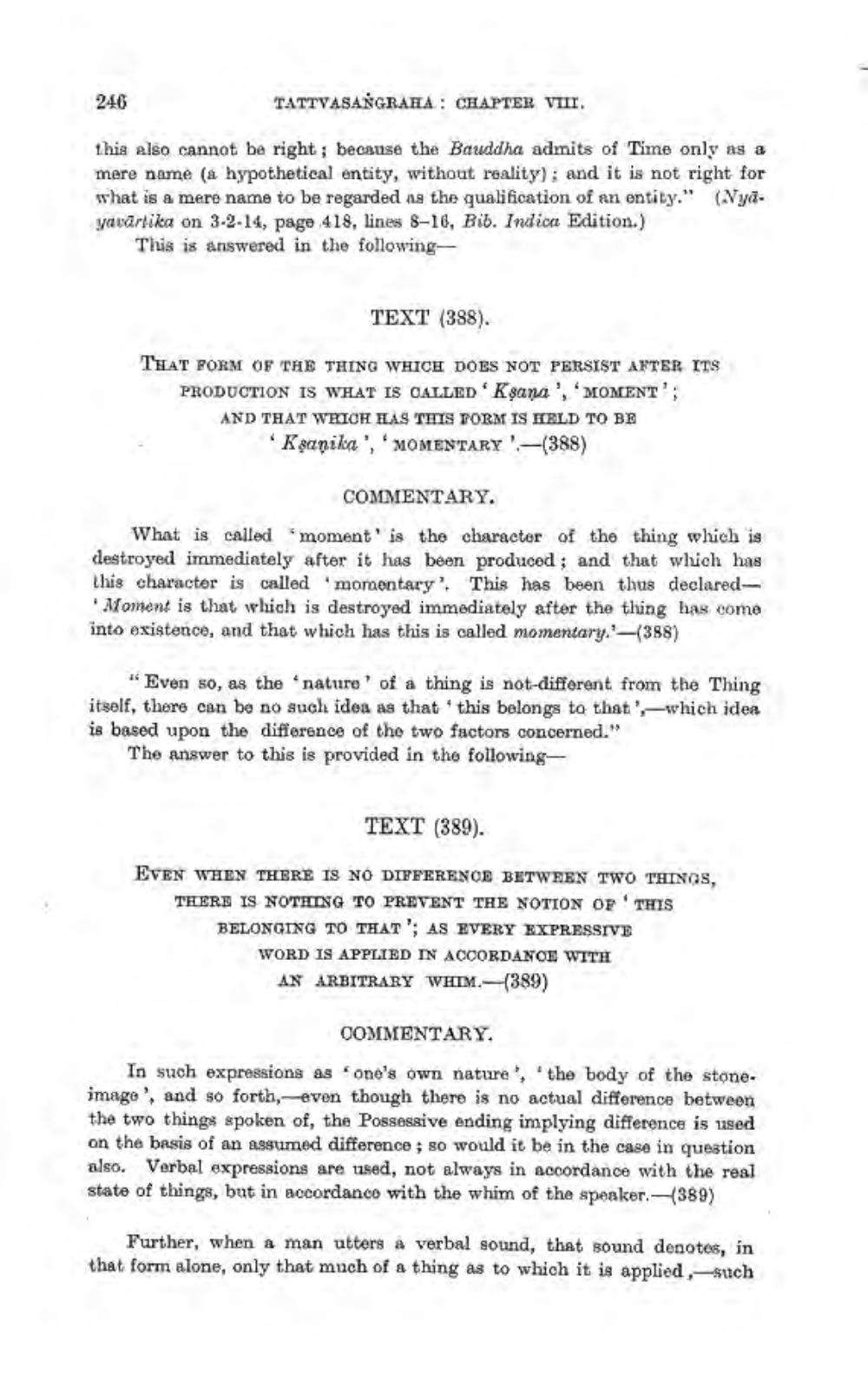________________
246
TATTVASANGRAHA: CHAPTER VIII.
this also cannot be right; because the Bauddha admits of Time only as a mere name (a hypothetical entity, without reality); and it is not right for what is a mere name to be regarded as the qualification of an entity." (ya. yavārtika on 3-2-14, page 418, lines 8-16, Bib. Indica Edition.)
This is answered in the following
TEXT (388).
THAT FORM OF THE THING WHICH DOES NOT PERSIST AFTER ITS PRODUCTION IS WHAT IS CALLED Ksana', 'MOMENT'; AND THAT WHICH HAS THIS FORM IS KELD TO BE
Kganika', 'MOMENTARY ':-(388)
COMMENTARY.
What is called "moment' is the character of the thing which is destroyed immediately after it has been produced ; and that which has this character is called momentary'. This has been thus declared
Moment is that which is destroyed immediately after the thing has come into existence, and that which has this is called momentary.'-(388)
"Even so, as the nature of a thing is not-different from the Thing itself, there can be no such idea as that this belongs to that's which idea is based upon the difference of the two factors concerned."
The answer to this is provided in the following
TEXT (389).
EVEN WHEN THERE IS NO DIFFERENCE BETWEEN TWO THINGS, THERE IS NOTHING TO PREVENT THE NOTION OF THIS BELONGING TO THAT'; AS EVERY EXPRESSIVE
WORD IS APPLIED IN ACCORDANCE WITH
AN ARBITRARY WHIM.—(389)
COMMENTARY.
In such expressions as one's own nature, the body of the stone. image', and so forth--even though there is no actual difference between the two things spoken of, the Possessive ending implying difference is used on the basis of an assumed difference ; so would it be in the case in question also. Verbal expressions are used, not always in accordance with the real state of things, but in accordanco with the whim of the speaker.-(389)
Further, when a man utters a verbal sound, that sound denotes, in that form alone, only that much of a thing as to which it is applied, such




